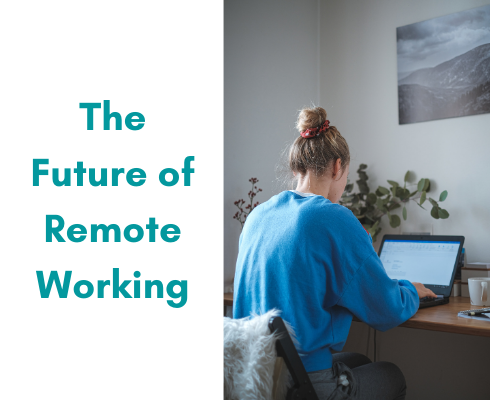
The Future of Remote Working Post-Pandemic
What will the UK workforce look like after lockdown?
As of Monday 12th April, we are *fingers, toes, everything crossed* hopefully never going to be in a full lockdown again. We don’t need to go into how mad the past year has been – it’s something that the majority of people never imagined experiencing in their lifetime. Now that most of the UK are starting to ease restrictions we’re beginning to wonder, what happens next for the work-from-homers?
The appeal of working from home in Lockdown One
Prior to the pandemic, 68% of workers in Britain had never worked from home and just 6% of UK workers were fully remote at the start of 2020, so going into this ‘new working world’ almost felt like a novelty. Despite being in lockdown, practically the opposite of freedom, remote workers felt like they had more freedom in their work life. So, that could contribute towards a YouGov poll in September indicating that 57% wanted to continue working from home every day or most days after the pandemic. There was a huge appeal: healthier lunches, saving money, no commute, having more time in the day to yourself. These are still valid and attractive reasons to work from home. So, why has there been a decline in the number of of those who want to work from home?
How’s it changed and why?
A recent poll, by Opinium for the Prospect trade union, found that 37% of workers want to work mostly or completely from the office after lockdown. This means that just 24% now want to work mostly or completely from home! Why has the attraction to remote working rapidly decreased? Opinium revealed that 35% of remote workers say their work-related mental health got worse in the pandemic, which is likely to play a contributing factor. This could be a result of many workers not being able to switch off, the boundaries between work and home blurring, and worrying about a dip in their productivity levels.
What’s next for remote working?
Working from home is here to stay. The majority of the UK workforce has got a taste of remote working and the idea of going back to being in the office 5 days a week seems farfetched. To battle the decline in workers’ work-related mental health, the Opinium study shows that 66% of remote workers support a ‘Right to Disconnect’ policy being added to the Employment Bill. This policy would require companies and employees to decide on guidelines on when people can’t be contacted regarding work. The policy takes a step towards reinstating the boundaries between home life and work life and could be incredibly positive for many UK workers.
Out of 20 of our latest UK vacancies, a huge 70% are country wide and/or remote based and 30% were office based/a mix of WFH and office. There’s lots of flexibility – if the successful candidate lives close to the main office, then there’s options to work in the office. Check out our blogpost from December to see how location trends have changed in the last few months.
What’s this going to look like at ESP?
We’re prioritising a flexible approach to remote working. ESP’s priority is the mental wellbeing of the team is paramount, so we asked some of the team how important flexible working is for them and much they want to be in the office. A large amount of the team, 85%, said that flexible working is ‘very important’ to them, and the remaining 15% said it was ‘fairly important’. Everyone said that they wanted a mixture of remote working and working in the office, with the sweet spot being at around 3 days a week in the office. Some of the team will likely work in the office 4 days a week, but it doesn’t really go lower than 3 or higher than 4.
This blend will keep up the great collaboration that ESP has by being mostly in the office, but keep the flexibility of working from home when the team want to. Senior Recruitment Consultant, Kurtis, said that the mix improves productivity – being from home all the time makes you feel stuck whilst coming into the office everyday would now feel like a rigid routine.



